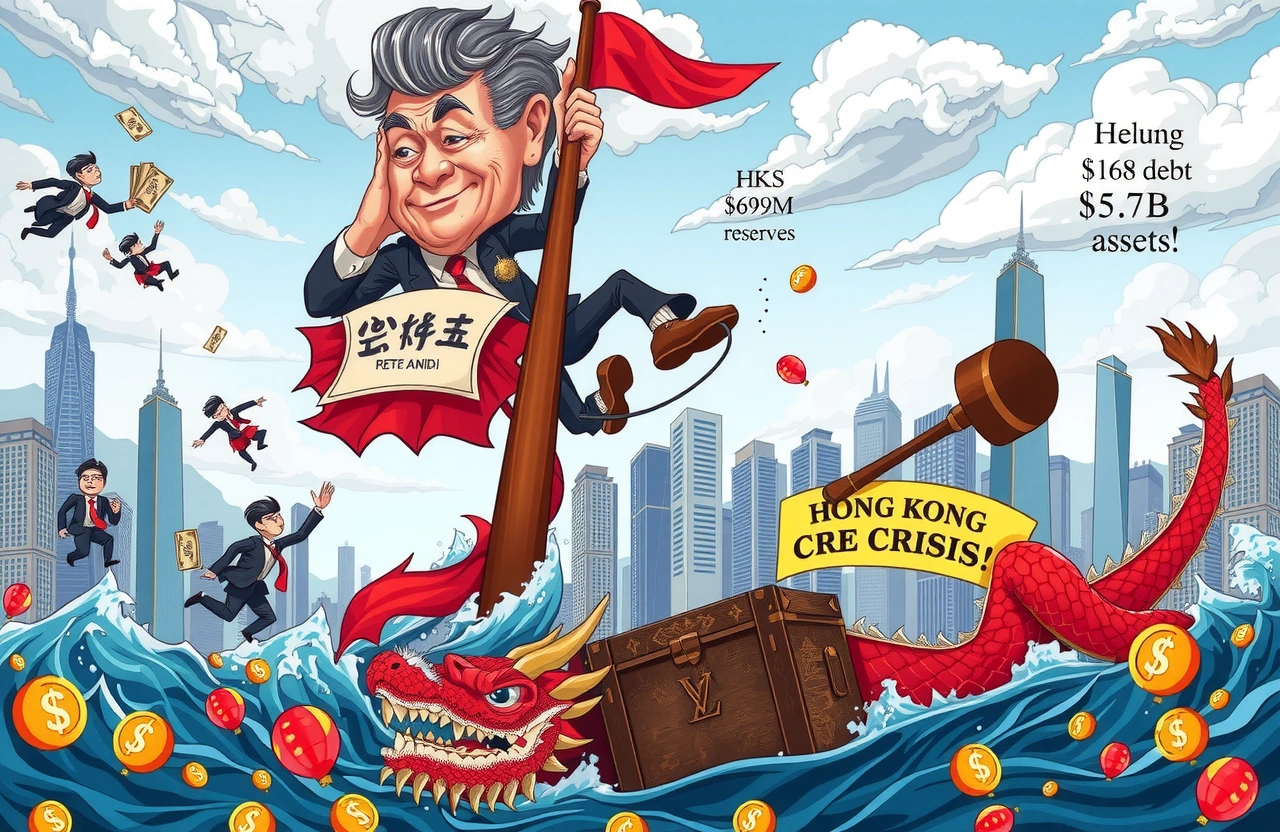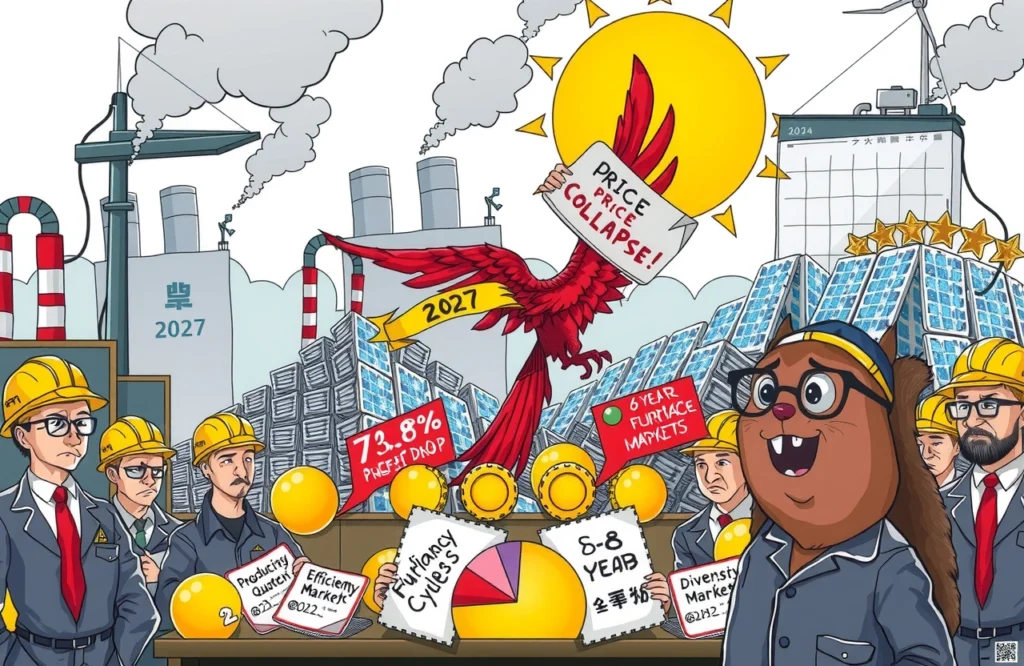The Auditor’s Alarm: A $1.66 Billion Debt Deadline
A non-standard report issued by Deloitte ignited panic across Hong Kong markets on June 30th. Auditor warnings questioning Emperor International Holdings’ survival capacity triggered an investor exodus comparable to financial earthquake tremors across Yeung’s corporate archipelago.
Emperor International’s stock plunged 15% intraday before closing 11.76% lower, vaporizing HK$1.5 billion in market capitalization. With HK$1.66 billion in bank loans coming due within twelve months and merely HK$639 million cash on hand, the Hong Kong-listed real estate arm of tycoon Albert Yeung (杨受成) faces impossible liquidity mathematics.
-
– Emperor Watch & Jewelry shares fell 8.33%
– Emperor Entertainment Hotel dropped 5.26%
– Emperor Capital plunged 18.18%
– Emperor Culture Resources Limited dived 14.89%
This domino effect exposed systemic vulnerabilities across the eight listed entities spanning hospitality, finance, entertainment, and retail that constitute Yeung’s HK$11.58 billion empire.
Parallel Worlds in Emperor International’s Financial Report
The FY2025 results revealed a financial paradox. Revenue climbed 41.5% to HK$1.376 billion driven primarily by residential property sales from projects like Tuen Mun’s Cheng Tian development, which surged 352%. Yet catastrophic investment losses dragged Emperor International to a record HK$4.743 billion loss—more than doubling last year’s deficit.
Surging Sales, Tumbling Rents
Two forces pulled results in opposite directions. Even as sales skyrocketed, Hong Kong’s commercial real estate downturn crushed rental income streams. Portfolio vacancies pushed rental revenue down 11.6%, while investment property valuations hemorrhaged HK$3.3 billion from market depreciation.
The company hasn’t recorded an annual profit since 2020—this sixth consecutive loss year brought accumulated deficits toward HK$8.5 billion, an unsustainable bleeding worsened by crashing valuations in Yeung’s trophy asset portfolio.
The HK$166 Billion Time Bomb
With current assets totaling HK$5.7 billion against short-term liabilities exceeding HK$16 billion, Emperor International could cover just one-third of obligations—cash coverage stood at a terminal 3.8%. Even more alarming was debt pressure intensification:
-
– Debt-to-asset ratio hit 54.68%—first crossing 50% since 2009
– Just HK$639 million cash reserves against HK$16.6 billion debt wall
– Recurring deficits eroding equity cushion since 2020
Deloitte explicitly highlighted “material uncertainties” regarding going concern status despite management’s rescue plans.
Strategic Missteps: The Buildup to Emperor International’s Debt Crisis
The origins of this debt crisis trace directly to Albert Yeung’s ill-timed acquisition spree during Hong Kong’s property downturn. In 2023, Emperor International paid HK$3.08 billion for Tuen Mun’s Lane Up commercial complex and Fortress Hill’s Kornhill Commercial Centre. The buying frenzy continued through 2024 with a HK$1.9 billion splurge acquiring non-core Hong Kong Island assets including:
-
– Mid-levels luxury apartments
– Causeway Bay retail units
– One Jardine’s Lookout mansion
These leveraged purchases piled atop existing HK$6-7 billion annual debt maturities just as Yeung’s holdings shed valuation. With vacancy rates climbing toward 16% and prime office rents down 27% since 2019, his diversification gamble backfired disastrously.
Emperor Group CFO Cheng Chen (程振升) defended the acquisitions: “We identified discount assets during cyclical weakness,” but acknowledged liquidity pressures require “asset recycling initiatives.”
Desperate Survival Measures
Facing debt obligations 26 times cash reserves, Emperor International launched fire sales across its trophy properties:
-
– Guangdong Road offices sold at HK$79.8 million—35% below 2022 valuation
– Harbourfront Horizons shops auctioned at HK$92.9 million—61% discount to peak pricing
Capital restructuring included a controversial rights issue offering shareholders two new shares for every one held at HK$0.25—a 30.6% discount that raised HK$455 million but diluted Emperor Entertainment Hotel ownership. This signaled Emperor Group sacrificing crown jewels to prop up its embattled property arm.
Management outlined an integrated debt crisis response:
-
– Accelerating non-core asset divestitures
– Renegotiating loan covenants with lenders
– Cost reduction through portfolio streamlining
– Exploring alternative financiers
Yet analysts remained skeptical. UBS real estate specialist Song Luwei noted: “Forced sales amidst Hong Kong’s deepest property slump since 2003 guarantees distressed pricing. Their contingency math assumes valuations won’t deteriorate further—a dangerous bet until vacancy tide reverses.”
History Repeating: The Ghost of 1983
The chilling parallels between Emperor’s current debt crisis and Albert Yeung’s catastrophic 1983 bankruptcy reveal recurring vulnerabilities. Then as now, over-leveraged property investments crumbled under macroeconomic shocks—this time China’s slowdown and US dollar strength instead of currency collapses.
After founding Emperor Watch & Jewelry in 1968, Yeung expanded rapidly through:
-
– IPO raising HK$78.8 million via Good World Investment in 1973
– Aggressive residential acquisitions like Borrowdale Road plots bought from Li Ka-shing (李嘉诚)
He championed “HK$2 debt for HK$10 projects,” boasting: “Why pay cash? Leverage multiplies profits.” Yet the 1983 Hong Kong dollar crisis triggered HSBC’s seizure of assets—leaving him bankrupt with literally “a watch, suit, and glasses.” Yeung rebuilt via gold trading before refocusing on real estate.
The octogenarian’s property evangelism remains unchanged, regularly advising artists like Nicholas Tse (谢霆锋): “Secure stability by owning property.” Yet identical patterns of debt-fueled expansion during rising markets now threaten implosion.
The Emperor Group’s Complex Corporate Architecture
Beyond Nicholas Tse: An Interconnected Empire
While celebrities like Joey Yung (容祖儿) or Nicholas Tse dominate headlines, Emperor Group’s seven publicly traded entities span retail, entertainment, hospitality, and capital markets:
-
– Emperor Watch & Jewelry (retail)
– Emperor International (real estate)
– Emperor Capital (finance)
– Emperor Entertainment Hotel (hospitality)
– Emperor Culture Resources (media)
– New Media Lab (digital advertising)
– OOIL PSC (furniture manufacturing)
Real Estate Heavyweight
Despite diversified branding, Emperor International anchors Yeung’s financial structure. Its global holdings include premium Hong Kong corridors like Russell Street, Beijing’s Chang’an Avenue spots, and London’s Oxford Street. Yet commercial assets constitute 76% of its crisis-hit portfolio.
The Hong Kong Monetary Authority reports non-performing CRE loans surged to 3.4%, with Emperor’s vacancy struggles exemplifying sector pain. Unless China stimulus reverses tenant exodus, Emperor’s HK$12.7 billion investment property book risks further deflation.
The Path Forward: Survival Amidst Systemic Headwinds
Emperor International confronts four overlapping threats magnifying its debt crisis:
-
– Interest rates: HIBOR hikes raising debt servicing costs 15% YOY
– Vacancy rates: Peak office vacancies projected into 2026
– Capital access: Diminished lender appetite
– Asset valuations: 27% property depreciation since 2021
Yuanda Worldwide economist Tsui Ching Yuen warns: “Hong Kong’s massive US$180 billion CRE exposure faces structural repricing beyond cyclical dips. Emperor’s niche downtown holdings depend disproportionately on financial tenants unlikely to rebound soon.”
Unlike 1983, disaster prevention requires voluntary assets concessions before loan covenant breaches trigger domino defaults across Yeung’s group companies.
Silver Linings Amid the Stall?
Potential lifelines exist. Residential resource division Emperor Palace recorded HK$967 million sales—proof certain assets retain liquidity. Proposed luxury developments in Kai Tak may attract Mainland buyers if immigration policies ease.
Operational reforms outlined to auditors include:
-
– Consolidating small offices into grade-A towers
– Converting commercial spaces into co-living complexes
– Expanding hospitality partnerships
Analyst consensus indicates survival requires tangible outcomes within two fiscal quarters. As S&P Global coverage notes: “Creditors have limited patience amid Hong Kong’s worsening CRE fundamentals.”
Albert Yeung’s battle echoes across Asian conglomerates facing leveraged property exposures. Lessons from Emperor’s debt crisis underline portfolio liquidity necessity when staring down billion-dollar obligations. Can strategic disposals restore solvency before defaults cascade? Investors betting against Hong Kong commercial recovery hold significant leverage. Yet Yeung overcame bankruptcy once—refusing history’s repetition absorbs Emperor International’s final reserves.
Monitor Emperor International’s disclosures particularly quarterly cash positions and covenant negotiations with creditor banks. For Hong Kong’s retail investors: Assess creditor vulnerability across holdings. Property prices likely stay volatile through 2025—prudence demands diversification beyond CRE anchors. The glow of trophy assets fades quickly against pending debt walls.




